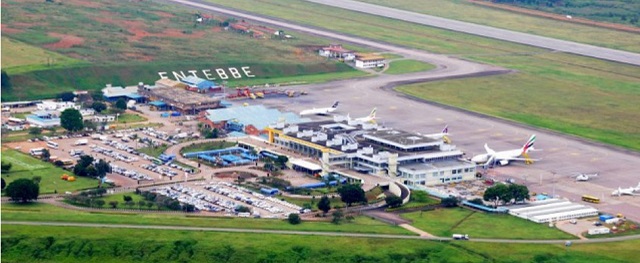
Escrow accounts
Two years ago, in December 2019, Auditor General John Muwanga in a report to parliament for the year ended June 30, 2019, raised concern about various facility agreements for issued loans that the GOU was obliged to open escrow accounts – what is being called “mortgaging” national assets.
The Auditor General was concerned that the Chinese lenders compel the government to make advance deposit of funds over the tenure of the loan required for the repayment of the loan.
“The government has no control over these accounts,” Auditor General Muwanga says in the report, “The funds are deposited on commercial bank accounts upfront and the creditors have access to them before even the loans are disbursed.
“The practice causes financial strain to the cash flows of the country and maybe as a result of weaknesses in negotiations that are undertaken by the government of Uganda and the lenders.” Muwanga says.
At the time, the total balances in the escrow accounts stood at Shs264 billion as of June 30, 2019. That was a 56% jump from Shs150 billion the year before. The Auditor General mentioned four escrow accounts; all of them for money borrowed from China. They included the $350 million loan for Entebbe Airport with a balance of Shs125 billion on the escrow account, Isimba Hydropower Project with Shs35 billion, Civil Aviation authority Shs14 billion and Karuma Hydropower Project with a balance of Shs87 billion on the escrow account.
These escrow accounts are also called lender-controlled revenue accounts and Chinese lenders use them to mitigate risk of non-payment in otherwise risky lending environments.
Through the escrow or special accounts, borrower governments like Uganda, commit to maintain and fund bank accounts either at the lending institution or at a bank “acceptable to the lender” throughout the life of the loan. They commit to route through these accounts project revenues and/or cash flows that are unrelated to the project funded by the loan.
The escrow accounts are China’s security device. They require the debtor to maintain a minimum account balance which; in most cases, is the annual principal, interest, and fees due under the debt contract.
In 70% of the Chinese transactions with a special account, all revenues from the associated projects must be deposited in the account. In 38% of the Chinese account arrangements, the account is financed from unrelated sources, either instead of or in addition to project revenues. In Ecuador and Venezuela, it is revenue from oil, in Ghana it is bauxite revenue, and in Costa Rica it is revenue from financial assets. In some of the contracts, especially the bigger ones from the Chinese Development Bank (CDB), the Chinese expressly limit the debtor’s withdrawal rights to those specified in the account agreement and have the ability to block the debtor from withdrawing funds. This is the case with Argentina, Ecuador and Venezuela.
One of the biggest challenges posed by these escrow accounts is that money assumed to be flowing into government coffers, say from Entebbe Airport operations, is in fact flowing to an offshore account controlled by the Chinese lender. The idea is for the Chinese to ensure that they are paid before any other lender; be it the World Bank, the International Monetary, or local and foreign commercial banks. This is a very risky arrangement; especially if a country experiences financial distress and seeks to restructure its debt.
Chinese lenders to the government also ensure that the contracts have broad cancellation, acceleration, and stabilisation clauses that give them policy leverage over Uganda.
Growing concern
When Muwanga released the report in 2019, it did not generate the level of debate being seen today. That is possibly because Uganda debt was not a big issue back then. At the time, total public debt was Shs46 trillion having risen gradually from Shs29 trillion in 2016. A report by the Auditor-General released in January 2021 said the debt was US$11.1 billion in 2018.
At the time, the Minister of Finance and Economic Planning, Matia Kasaija, told journalists that acquiring some of the loans had involved the country signing waivers of its sovereignty over certain national assets. But he said those clauses could only be invoked by the lenders if the country defaulted on the terms of the agreements. Kasaija said debt repayment default was not a possibility and he was not worrying about it.
“I have told you, as long as some of us are still in charge, unless there is really a catastrophe, and which I don’t see at all,” he said, “I’m not worried about China taking assets.”
Now, a report by the Council on Foreign Relations says, generally speaking, foreign governments and international financial institutions are hesitant to make loans to Uganda.
Apparently, they remain skeptical that Uganda will be able to honour them—except, apparently, China. Ugandan President Yoweri Museveni recently admitted that China is the only partner that would agree to lend Uganda, Tanzania, and Kenya $3.5 billion to construct a series of railways and roads.
In addition, China is financing a $4 billion oil pipeline, currently under construction, that will connect the western region of Uganda to the port in Tanga, Tanzania.
 The Independent Uganda: You get the Truth we Pay the Price
The Independent Uganda: You get the Truth we Pay the Price




But why does our international airport still have that shabby “under construction” makeshift look… after all the loans and years of spending and endlessly ongoing works?